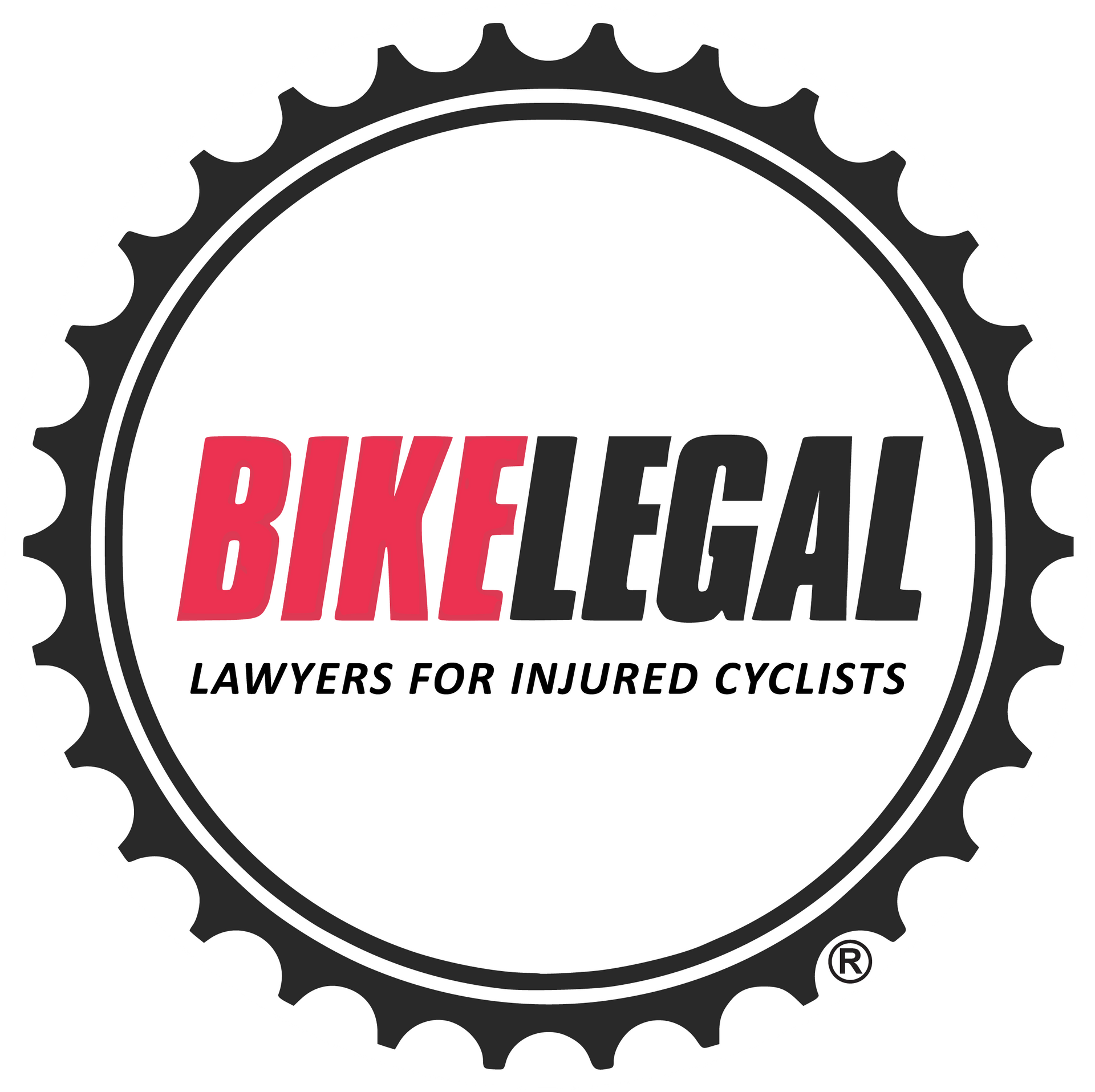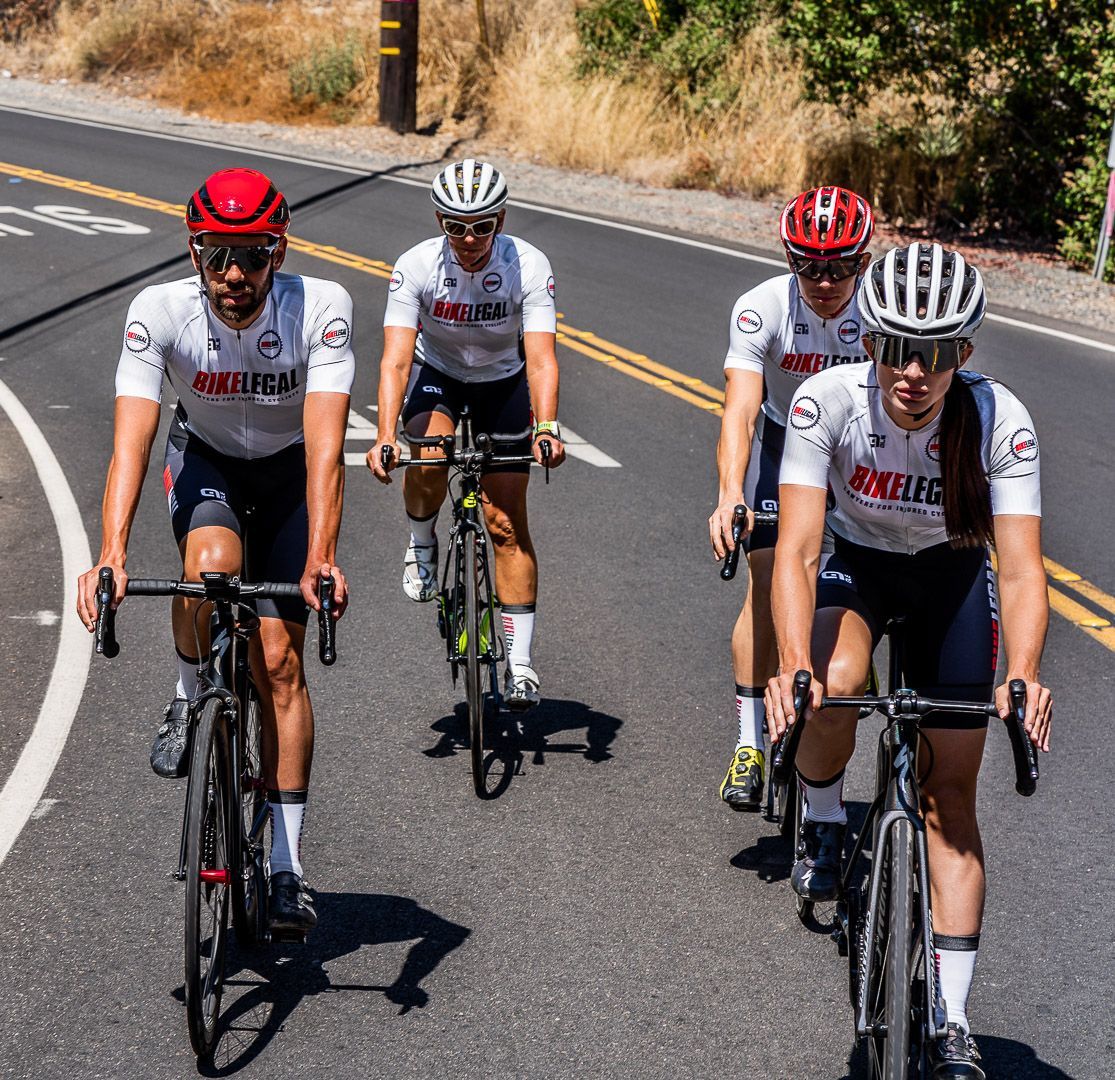How To Determine Who Is At Fault In A Bicycle Accident Case
Follow us on
social media!
How To Determine Who Is At Fault In A Bicycle Accident Case?
If you love cycling, you may have experienced the freedom and joy of riding on two wheels. However, bicycle accidents can happen; they can be traumatic and life-changing events. If you are in a bicycle accident, one of the most essential things to determine is who is at fault. It is crucial to receive compensation for your injuries.

Determining fault in a bicycle accident case can be challenging, especially when there are conflicting stories or no witnesses. However, following the below steps can increase your chances of proving the fault.
Let's explore how to determine fault in a bicycle accident case.
Gather Information About The Accident
After a bicycle accident, gathering as much information as possible to determine who is at fault and protect your legal rights is essential.
Assess Your Safety And Exchange Information
The first step is to assess your safety and exchange information with the other parties involved in the accident.
It includes getting the names, contact information, and insurance information of the other party and any witnesses. Take photos of the scene and any vehicle or property damage.
Get In Touch With The Police
Call law enforcement to report the accident, even if it seems minor. The police will create an accident report that includes essential information such as the location of the accident, date, time, and the names of all involved parties and witnesses. Get a copy of the police report for your records.
Document Your Injuries And Damages
Document any damages you sustained in the bicycle accident, including cuts, bruises, and broken bones. Keep all medical records and bills related to the accident.
Additionally, document any damages to your bicycle or other property.
Gather Evidence
Gather evidence that may help prove the fault, such as skid marks on the road, video footage, or witness statements. Be sure to keep all evidence safe and organized.
Identify Potential Factors That Contributed To The Accident

When assessing potential factors that contributed to the accident scene, you should consider the following:
- Condition of the road: Was the road wet, uneven, or poorly maintained? Was there any road obstacle or hazard that could have contributed to the bicycle accident?
- Weather conditions: Was it raining, snowing, or foggy? Did this impact visibility or road conditions?
- Bicycle or equipment malfunction: Was there any malfunction in the bicycle or equipment that could have contributed to the accident? Does it include brake failure or tire blowout?
- Other external factors: Were there any construction zones, detours, or other factors that could have contributed to the accident?
It's important to consider all possible external factors contributing to bicycle accidents.
Analyze Relevant Laws And Regulations
If you're involved in a bicycle accident scene, it's essential to consider whether you or the other party violated any relevant laws or regulations. You can determine fault and responsibility for the accident by examining this factor.
To make an informed assessment of the situation, you should understand the applicable traffic laws for bicyclists and motorists. It can help you take appropriate action and protect your bicycle injury claim.
Understanding Traffic Laws And Regulations
To determine fault in a bicycle accident case, you should know the road rules, such as when to yield or stop at intersections, the speed limit, and where a bicycle rider can ride.
Understanding where bicycles are allowed to ride, such as bicycle lanes or designated routes, is vital.
In addition, it's essential to understand the different types of traffic signs and signals that apply to you and motorists, such as stop signs, traffic lights, and yield signs.
Lastly, be aware of any relevant state or country laws that apply to you and motorists, such as helmet laws, mandatory bicycle lane use, or special traffic rules for bicycle riders.
These lawsuits can vary from jurisdiction to jurisdiction, so staying informed about the laws in your area is crucial.
Determining Violations Of Relevant Laws Or Regulations
Once you understand the applicable traffic laws and regulations, you can determine who has violated any laws that may have contributed to the accident. Some things to consider may include:
- Was the driver obeying the laws, such as yielding to the bicyclist when required?
- Was the bicycle rider obeying laws, such as stopping at stop signs and traffic lights or riding in the designated bicycle lane or on the road?
- Were any other relevant laws or regulations violated, such as distracted driving or impaired biking?
Researching Local Laws And Regulations
It is important to note that states and countries have different laws and regulations regarding bicyclists and motorists.
Therefore, you must research and analyze the laws that apply to your location and situation. It includes:
- Researching state traffic laws and regulations: California has specific laws for bicyclists and motorists, covering bike lane use, right-of-way, and speed limits.
- Checking local ordinances: Many California municipalities have ordinances for bicycle riders and drivers, such as helmet or bicycle light requirements.
- Consulting with legal experts: It's wise to seek the guidance of legal professionals specializing in bicycle accidents in California to understand your rights and options.
Consider Comparative Negligence
In bicycle accident cases where you and the motorist share some responsibility for the collision, the legal concept of pure comparative negligence may apply. In such cases, the court will assign a percentage of fault to each party based on the evidence presented.
For instance, let's say you were injured in a collision with a car, and the court finds you 40% responsible for the accident while the driver is 60% responsible. Your damages would be reduced by 40%. It means that if you were seeking $10,000 in damages, you could only recover $6,000.
It's essential to remember that the percentage of fault assigned to each party can vary depending on the situation of the accident and the state where the accident occurred.
Moreover, different states may have laws regarding comparative negligence, impacting the damages you can recover.
Working with an experienced bicycle accident lawyer can help you build a convincing case and ensure you receive the maximum compensation possible, even in cases where comparative negligence is a factor.
Consult With Experts
Consulting with experts can be crucial in building a solid case when determining fault in your bicycle accident case. You may want to consider consulting with the following experts:
Accident Reconstruction Specialists
In bicycle accident cases, an accident reconstruction specialist can be crucial in proving fault and building a strong case. They can help recreate the accident scene, gather evidence, and provide a detailed analysis of the accident.
They can also evaluate factors such as vehicle speed, direction of travel, and impact angles to help determine who was at fault.
In California, an accident reconstruction specialist may be called upon in court, providing expert testimony to support your case.
Medical Professionals
If you have been injured in a car-bicycle accident, it is vital to seek medical attention immediately. Medical professionals can provide an expert opinion on the extent of your injuries, the medical treatment you require, and the long-term effects of your injuries.
In California, medical professionals can also provide the necessary documentation to support your bicycle accident claim.
Legal Experts
Navigating the legal system after a cycling accident can be overwhelming, especially when dealing with injuries and medical bills. Furthermore, legal experts, such as bicycle accident lawyers, can provide valuable suggestions on proceeding with your case.
They can help you gather evidence and negotiate with the insurance company to ensure that you recover compensation.
Call Bike Legal Law For Help With Your Bicycle Accident Claim
You must seek legal help immediately if you have suffered severe injuries in a bicycle accident. At Bike Legal Law Firm, we understand the physical, emotional, and financial impact that bicycle accident injuries can have on your life, which is why we are here to help.
Our team of experienced bicycle accident lawyers has the skills to navigate the complex legal system. Moreover, they help you receive fair compensation. Also, our payment structure is based on a contingency fee, which implies that we will only charge a fee if we successfully win your case.
Contact us at 877-245-3534 to schedule a Free Consultation and discuss your bicycle accident claim.

